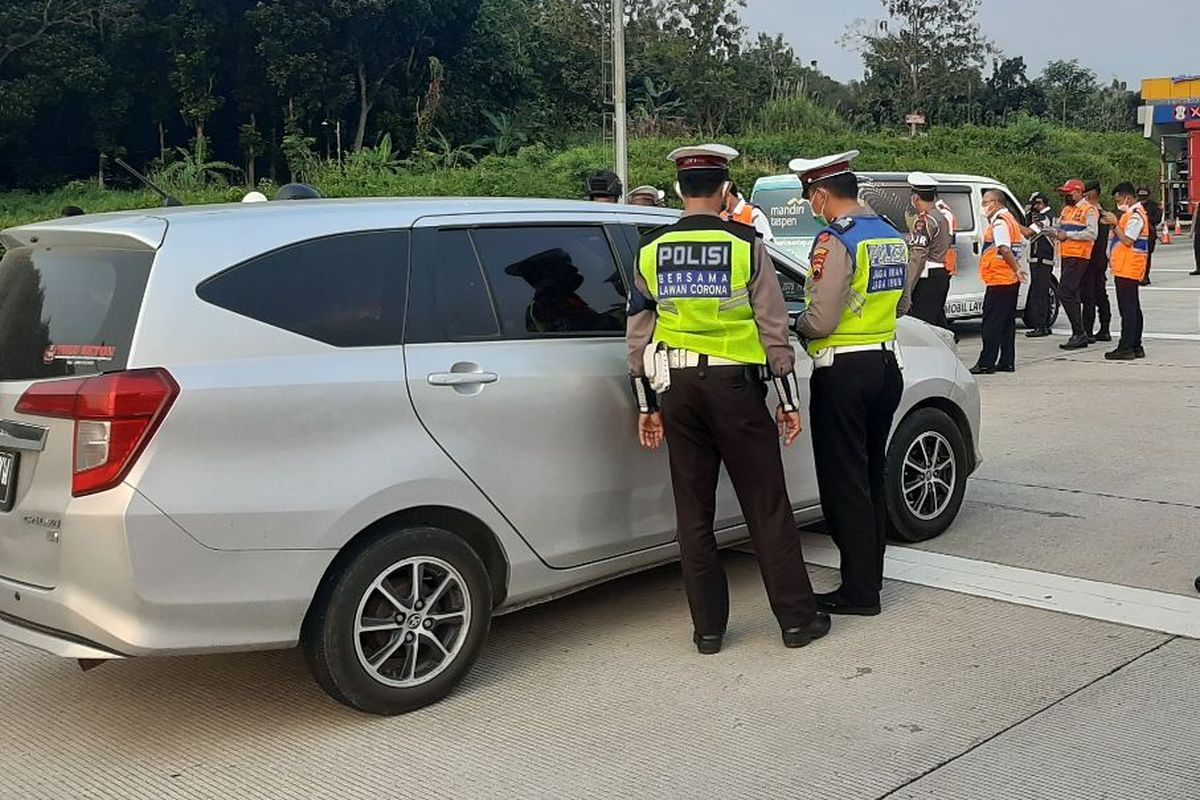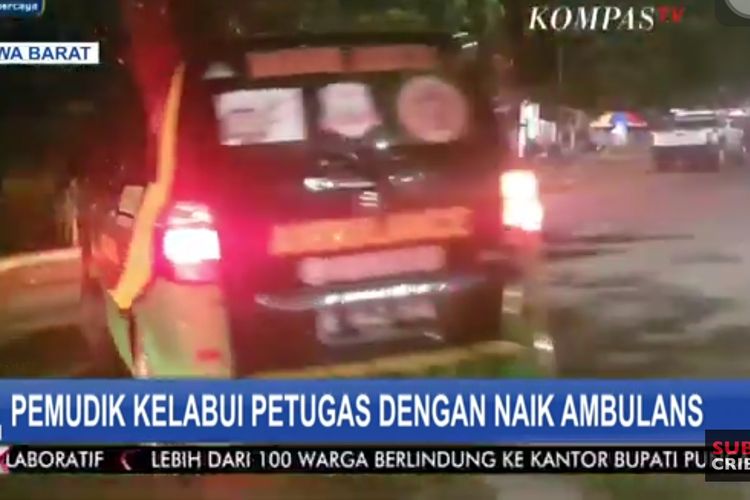Indonesia to Apply No Exceptions in Eid al-Fitr Holiday Travel Ban

JAKARTA, KOMPAS.com – The government has announced that its decision to ban homecoming travel or mudik for the Idul Fitri or Eid al-Fitr holidays will include agglomerations of nearby areas as well as more distant provinces.
Covid-19 Task Force spokesman Wiku Adisasmito said the ban applies to nearby inter-provincial agglomerations such as the Greater Jakarta area encompassing the capital and the satellite cities of Bekasi, Bogor, and Depok in West Java province, as well as Tangerang in Banten province.
“Travel between long-distance provinces or travel in short-distance agglomerations or ‘localized travel’ are both forbidden. The government never made exceptions for localized travel, since all holiday travel is not allowed,” he confirmed to Kompas.com on Friday, May 7.
Wiku added that the government decision is based on a Ministry of Transportation policy stipulating the phasing out of vehicles for holiday travel between May 6 to 17.
Also read: Indonesia Expands Public Activity Restrictions to 30 Provinces
“The restriction of vehicles for holiday travel is simultaneous with restricting the movement of people [during the holiday season]. The only exceptions to be made are for government officials on official business, as well as the activities of essential sectors.”
Thrown in confusion
Wiku is aware that ambiguity and confusion still surrounded the government’s policy on travel in agglomerated areas like the Greater Jakarta Area. These include how to tell the difference between holiday travelers and commuters.
“[The government’s] policy confused us. During our meeting with Minister of Home Affairs [Tito Karnavian], the central government said holiday travel within agglomerated areas are allowed. Then the government confused us by reversing that position,” said Tangerang Mayor Arief Wismansyah.
 A Kompas TV screenshot of an ambulance stopped in Bekasi, West Java for carrying homebound holiday travelers in Bekasi, West Java Friday (7/5/2021).
A Kompas TV screenshot of an ambulance stopped in Bekasi, West Java for carrying homebound holiday travelers in Bekasi, West Java Friday (7/5/2021).The Jakarta Provincial Administration is just as confused with the dilemma of telling the difference between citizens of the Greater Jakarta that need to buy foods, go to work or emergencies with those going to their parents’ house for the holidays.
Of these, only commuters to work are covered.
Also read: Jakarta's Tanah Abang Market Swamped By Idul Fitr Holiday Shoppers
“Those who live outside of Jakarta and need to go to their office in the capital must have a letter from their workplace,” said Jakarta Public Order Agency [Satpol PP] head Arifin. “We wil then cross-list this document with their office and whether it is linked to their work.”
Jakarta Transportation Service head Syafrin Liputo agreed. “We are likely to stop and pull over cars that are loaded with passengers and items, as they are more likely to be holiday travelers. Motorcyclists are more difficult to stop because of their numbers,” he said.
Bogor Mayor Arya Bima and South Tangerang Mayor Benyamin Davnie cited similar concerns. “It will be difficult to keep the public from traveling at the local level, as the government ban on localized travel came late,” said the latter.
Aside from the Greater Jakarta Area and Greater Solo Area, other agglomerations that will be affected by the government policy include the surrounding areas of other Indonesian cities such as Bandung, Medan and Makassar.
Indonesia's annual mudik travels is one of the largest of its kind in the world, comparable to the Lunar Chinese New Year or the year-end Thanksgiving and Christmas holiday travels in the United States.
(Writer: Vitorio Mantalean | Editor : Diamanty Meiliana)
Sources
Simak breaking news dan berita pilihan kami langsung di ponselmu. Pilih saluran andalanmu akses berita Kompas.com WhatsApp Channel : https://www.whatsapp.com/channel/0029VaFPbedBPzjZrk13HO3D. Pastikan kamu sudah install aplikasi WhatsApp ya.- mudik
- Banten
- task force
- Wiku Adisasmito
- Indonesia Covid-19
- West Java
- Greater Jakarta Area
- Covid-19 Task Force
- holiday travel
- indonesia mudik ban 2021
- indonesia mudik 2021
- indonesia mudik covid
- indonesia mudik travel ban
- indonesia lebaran 2021
- indonesia lebaran holiday 2021
- indonesia lebaran eid
- indonesia eid holiday 2021
- indonesia eid 2021
- indonesia eid travel ban
- indonesia holidays for eid
- mudik tradition in indonesia
- mudik annual tradition






























